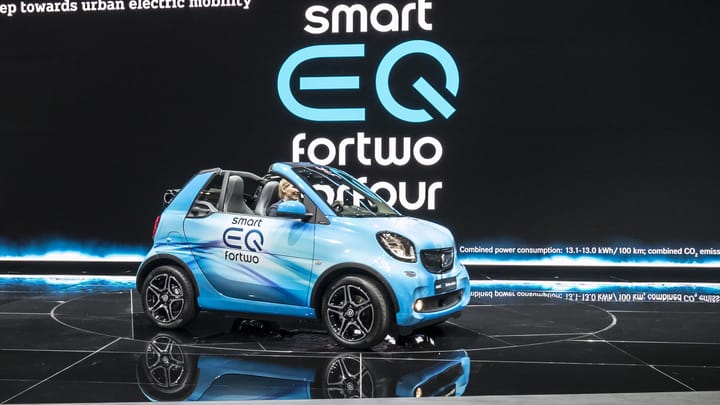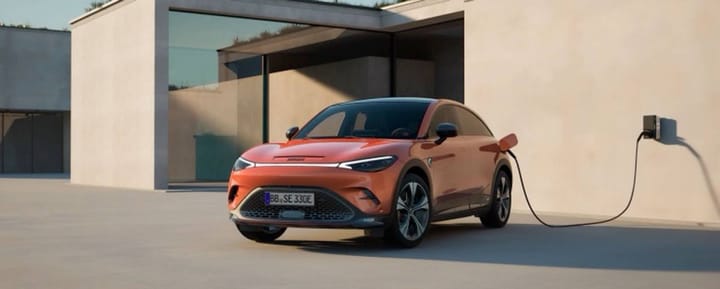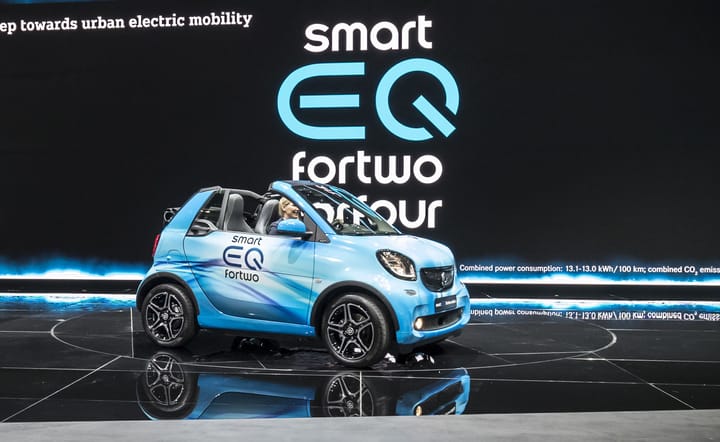Table Of Contents
Understanding Electric Vehicle Leasing
Best Electric Lease Deals Available
Smart Technology in Electric Vehicles
Financial and Environmental Impact
FAQ
In the rapidly evolving world of electric vehicles (EVs), leasing has emerged as a smart and flexible option for drivers looking to enjoy the latest in automotive technology without the long-term commitment of ownership. This guide delves into the essentials of electric vehicle leasing, from understanding the basics and benefits to highlighting the best deals on the market. It also explores the role of smart technology in enhancing the EV experience and the financial and environmental impacts of choosing to lease.
TLDR
- Understanding the basics and benefits of leasing electric vehicles can save you money and offer flexibility.
- Evaluating and finding the best electric vehicle lease deals requires attention to the fine print.
- Smart technology significantly enhances the electric vehicle driving experience and is a key factor in future trends.
- Leasing electric vehicles has notable environmental benefits and can contribute to long-term savings.
The Intersection of Electric Vehicle Leasing and Urban Sustainability
Electric vehicle (EV) leasing is not just a trend; it's a transformative force in urban development and the quest for sustainable cities. By making EVs more accessible, leasing programs are accelerating the shift towards cleaner transportation options, thereby reducing urban greenhouse gas emissions and improving air quality. This shift is crucial for cities aiming to meet environmental targets and enhance the quality of life for their residents.
"The adoption of electric vehicle leasing can lead to a decrease in the demand for traditional gasoline-powered vehicles, reducing greenhouse gas emissions and improving air quality in cities." - FasterCapital
Moreover, the surge in electric vehicle leasing is prompting a rethink in urban planning and public transportation systems. Cities are now faced with the challenge and opportunity to integrate more EV charging infrastructure, which not only supports the growing number of personal electric vehicles but also complements public transportation systems by providing cleaner, alternative modes of transport.
-
Urban Planning Impacts:
- Increased need for EV charging stations.
- Reduced reliance on traditional gasoline-powered vehicles.
- Integration of EVs into public transportation strategies.
-
Public Transportation Systems:
- Adoption of electric buses and shared EV programs.
- Potential reduction in traditional public transport usage as more individuals opt for EV leasing.
The role of electric vehicle leasing in enhancing the efficiency of renewable energy utilization through smart grids and energy storage solutions cannot be overstated. By facilitating the broader adoption of EVs, leasing programs are pivotal in the development of vehicle-to-grid (V2G) technologies. These technologies allow EVs to store excess renewable energy and discharge it back to the grid when needed, thereby balancing supply and demand and enhancing overall energy efficiency.
"Through V2G technology, electric vehicles can store excess renewable energy during peak production times and discharge it back to the grid when needed, helping to balance supply and demand." - MDPI
In essence, electric vehicle leasing is more than a financial or lifestyle choice; it's a cornerstone in the foundation of sustainable urban development. By promoting the adoption of clean transportation, supporting the integration of smart grid technologies, and influencing urban planning and public transportation systems, EV leasing is driving cities towards a greener, more sustainable future.
Understanding Electric Vehicle Leasing
The Basics of Electric Vehicle Leasing
What You Need to Know Before Leasing an Electric Vehicle
Thinking about leasing an electric vehicle (EV)? Well, it's a bit different from snagging a traditional gas guzzler. You've got to consider a few things like tax breaks, how long that battery's going to last, and the tech that's changing faster than you can say "zero emissions."
First off, do a deep dive into the tax credits and incentives. Governments are pretty keen on getting folks into EVs, so there are deals to be had that can slim down your monthly payments. But remember, these deals are always in flux, so keep your ear to the ground.
Next up, battery life. Nobody wants to get stranded with a dead battery. The good news is most leases are short enough that you won't see the worst of battery wear and tear.
And don't forget to think about your daily grind. Make sure the EV you're eyeing can handle your commute and errands, and that you've got a place to charge it without a hassle.
How Leasing an Electric Vehicle Works
Leasing an EV? It's pretty much like leasing any car, but with a couple of twists. You pay a monthly fee to drive the car for a set time, usually 2-3 years. When time's up, you can buy the car, hand it back, or pick out a new one.
The cool part about leasing an EV is getting to switch to a newer model with all the latest gadgets and a better battery every few years. So, you're always driving the freshest wheels without being tied down.
Plus, leasing can be kinder to your wallet than buying. With incentives and lower maintenance costs, your monthly payments can be more manageable. It's a sweet deal if you're looking to drive an EV without the hefty price tag of buying one outright.
Benefits of Leasing Over Buying
Financial Advantages of Leasing Electric Vehicles
Leasing an EV has its perks, especially when it comes to your bank account. You're not shelling out for the whole car, just the depreciation during your lease. This means your monthly payments are usually lower than if you bought the car outright. And don't forget about those tax incentives and rebates that can sweeten the deal even more.
Flexibility and Technological Advancements
One of the best things about leasing is the freedom to upgrade. With EV tech moving at lightning speed, leasing means you can always have the latest and greatest without being stuck with yesterday's model.
| Leasing | Buying |
|---|---|
| Lower upfront costs | Higher upfront costs |
| Access to tax incentives and rebates | Limited or no access to incentives |
| Flexibility to upgrade | Stuck with the same model |
| Always have the latest EV tech | Tech could be outdated soon |
In a nutshell, leasing an EV lets you stay ahead of the curve, enjoying the newest innovations and financial benefits that make driving green an easy choice.
Best Electric Lease Deals Available
Evaluating Lease Deals
Finding the Best Electric Vehicle Lease Deals
Hunting for top-notch electric vehicle (EV) lease deals? You'll wanna cast a wide net. Check out multiple dealerships and manufacturers for those sweet deals and incentives that can make your monthly payments a lot more manageable or cut down those upfront costs. Sites like Edmunds and Kelley Blue Book are gold mines for info on the latest lease offers. But don't just look at the shiny monthly payment - consider the whole package, including down payment, monthly payments, and any fees when the lease is up.
Deciphering the Fine Print in Lease Agreements
Got your hands on a lease agreement? Time to put on your detective hat and dive into the nitty-gritty. Keep an eye out for the mileage limit because going over can cost you big time. Also, get the lowdown on the wear and tear policy. Some deals might ding you for damages that go beyond the usual bumps and bruises. And don’t forget to ask about what happens when the lease ends. Whether you're thinking of buying the car, handing back the keys, or jumping into a new lease, knowing your options ahead of time can save you from any surprises.
So, there you have it. No need to get bogged down by the formalities. Just keep these tips in mind, and you'll be well on your way to snagging an electric vehicle lease deal that's right for you.
Smart Technology in Electric Vehicles
The Role of Smart Technology in EVs
How Smart Technology Enhances the EV Experience
Smart tech in electric vehicles (EVs) is a game-changer, making driving and owning them a whole lot better. We're talking about stuff like driver-assistance systems that keep an eye on the road for you, connected services that let you check on your car from your phone, and entertainment setups designed just for EVs. Imagine your car figuring out the best way to get somewhere, taking into account how much juice your battery has and where you can charge up along the way. This smart tech keeps you in the loop and makes driving an EV a breeze.
Future Trends in Smart Technology for Electric Vehicles
Looking ahead, smart tech in EVs is only going to get cooler and more integrated. Here's what's on the horizon:
- Autonomous Driving: We're inching closer to the day when EVs can drive themselves, cutting down on the need for us to be behind the wheel.
- Vehicle-to-Grid (V2G) Integration: Imagine your EV not just sucking power from the grid but also giving it back, helping keep things stable when everyone's cranking their AC.
- Enhanced Battery Technology: There's work being done on making batteries charge faster, last longer, and manage their energy better while you're on the road.
These trends are painting a picture of a future where EVs are more than just cars. They're part of a bigger, smarter ecosystem that's all about making life easier and greener.
Financial and Environmental Impact
Digging Into the Dollars and Sense
The Wallet-Friendly World of Leasing Electric Vehicles
Leasing an electric vehicle (EV) can be a game-changer for your wallet over the long haul. Why? Well, for starters, EVs are cheaper to run and maintain than their gas-guzzling cousins. Think about it: no oil changes, fewer moving parts to break down, and goodbye to the gas pump. Plus, leasing gives you the freedom to switch up to the latest and greatest models every few years, keeping you on the cutting edge of energy-saving tech without tying you down.
But, let's talk turkey for a minute. You gotta look at the whole picture - monthly payments, the initial down payment, and any of those pesky end-of-lease fees. Stack that up against the cash you'll save on fuel and fixing things, and you'll see if leasing an EV is the right move for your wallet.
Check out this quick breakdown:
| Cost Factor | Leasing an EV | Owning a Gasoline Vehicle |
|---|---|---|
| Monthly Payments | Usually easier on the wallet thanks to EVs holding their value | Prepare to fork out more, especially for the latest models |
| Maintenance | Often covered or cheaper - EVs are low maintenance | Costs can pile up with regular tune-ups and surprises |
| Fuel | Electricity bills are a breeze compared to gas prices | Gas prices can be a wild ride |
| Upfront Costs | Smaller down payments and sweet incentives | Bigger down payments and instant depreciation hit |
So, while the sticker shock of leasing an EV might give you pause, the long-term savings on gas and maintenance, not to mention the perk of always driving something fresh, can really make it worth your while. Just make sure it fits with how you drive and your budget.
Going Green Without Trying Too Hard
Electric Vehicles: Easy on the Planet
Electric vehicles (EVs) are a big win for the planet. Zero tailpipe emissions mean you're not coughing out pollutants every time you hit the road. It's a breath of fresh air, literally, and a solid step toward tackling climate change.
But it's not just about what doesn't come out of your car. EVs are also champs at turning energy from the grid into miles on the road. They're way more efficient than traditional cars, meaning less energy is wasted, and your carbon footprint starts shrinking.
And here's the kicker: the electricity that juices up your EV can come from renewable sources like the sun, wind, or water. So, as our power grid gets cleaner, driving an EV becomes even greener.
In a nutshell, leasing an EV is a no-brainer if you're looking to do your bit for the planet without sweating the small stuff.
FAQ
What are the main benefits of leasing an electric vehicle (EV) over buying one?
Leasing an EV offers several advantages, including lower upfront costs, access to the latest technology and models every few years, and potential financial incentives such as tax rebates and lower monthly payments. It's a great option for those who want to enjoy the benefits of driving an EV without the long-term commitment of ownership.
How does leasing an electric vehicle work?
Leasing an EV works similarly to leasing a traditional car. You agree to pay a monthly fee to use the car for a predetermined period, typically 2-3 years. At the end of the lease, you have the option to buy the car, return it and possibly lease a new one, or simply return it. Leases often include mileage limits and wear and tear policies, so it's important to understand these terms before signing.
Can leasing an EV save me money?
Yes, leasing an EV can save you money in several ways. Monthly lease payments are often lower than car loan payments for purchasing a vehicle. EVs also tend to have lower running and maintenance costs compared to gasoline vehicles. Additionally, you might qualify for tax incentives and rebates that can further reduce your costs.
What should I look for in an electric vehicle lease deal?
When evaluating an EV lease deal, consider the total cost, including the down payment, monthly payments, and any end-of-lease fees. Also, look at the mileage limit and the wear and tear policy. It's important to find a deal that fits your budget and driving needs. Websites like Edmunds and Kelley Blue Book can be helpful resources for finding competitive lease offers.
How does smart technology enhance the EV driving experience?
Smart technology in EVs offers features like driver-assistance systems, connected services for remote monitoring and control, and optimized navigation that considers battery life and charging stations. These technologies enhance safety, convenience, and efficiency, making the EV driving experience more enjoyable and hassle-free.
What future trends in smart technology for EVs should I be aware of?
Future trends in EV smart technology include advancements in autonomous driving, vehicle-to-grid (V2G) integration, and enhanced battery technology. These developments promise to make EVs even more autonomous, energy-efficient, and integrated with the broader energy grid, contributing to a more sustainable and convenient transportation ecosystem.
Are electric vehicles really better for the environment?
Yes, electric vehicles are better for the environment in several ways. They produce zero tailpipe emissions, reducing air pollution and greenhouse gas emissions. EVs are also more energy-efficient than gasoline vehicles, and as the electricity grid becomes greener with more renewable energy sources, the environmental benefits of driving an EV increase even further.
How do I know if leasing an EV is the right choice for me?
Consider your driving habits, budget, and desire for the latest technology. If you enjoy driving new models every few years, want lower monthly payments, and are interested in reducing your carbon footprint without the long-term commitment of ownership, leasing an EV could be a great choice for you.




